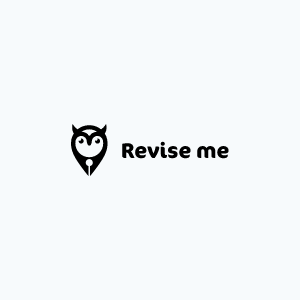Overcoming Writer’s Block: How to Get Started on Your Next Essay

ReviseMe
Posted on 23-12-2024 in Schrijven
Reading time: 5 minutes
It’s a familiar scene: you’re staring at a blank page, trying to will the words to come. The clock is ticking, the deadline is looming, but no matter how hard you try, you just can’t seem to get started. Welcome to writer’s block. But don’t worry—you’re not alone. Many students struggle with this at some point during their academic journey. The good news? There are ways to break through the block and get those ideas flowing. Here’s how to overcome writer’s block and start your next essay with confidence.
Understand the Cause of Your Block
Before diving into solutions, it’s important to understand why you’re stuck. Writer’s block can stem from a variety of sources:
Perfectionism: You’re trying to get everything perfect on the first try, which can lead to overthinking and anxiety.
Overwhelm: The assignment feels too big, and you’re not sure where to start.
Lack of direction: You’re not entirely clear on the topic or unsure of what your argument should be.
Identifying the root cause of your block can help you find the right strategy to overcome it.
Start with an Outline
One of the most effective ways to tackle writer’s block is by creating an outline. Rather than jumping straight into writing, take some time to organize your thoughts. An outline gives you a roadmap to follow, making the task feel less daunting.
Break down your essay into sections (introduction, body paragraphs, conclusion).
Under each section, jot down key points you want to make or evidence you plan to include.
Don’t worry about the details just yet—focus on the big picture.
Once you have an outline, you’ll have a clearer idea of what you want to say, which can make starting the actual writing process much easier.
Freewriting: The Power of Writing Without Judgment
If you’re feeling stuck, try freewriting. This technique involves writing continuously for a set period of time without worrying about grammar, structure, or even making sense. The goal is to get your ideas flowing without the pressure of creating something perfect.
Set a timer for 10-15 minutes and start writing whatever comes to mind, even if it’s just random thoughts about the topic.
Don’t stop to edit or second-guess yourself.
At the end, you might be surprised at how many ideas you’ve generated. You can always refine them later!
Freewriting helps unlock creativity and can serve as a starting point for more structured writing.
Break the Task into Small, Manageable Steps
Facing a huge essay can feel overwhelming, which can feed into writer’s block. To overcome this, break the task down into smaller steps.
Instead of thinking, “I have to write a 3,000-word essay,” tell yourself, “I’m going to write the introduction today” or “I’ll focus on drafting one body paragraph.” Tackling smaller, bite-sized pieces of the assignment makes the overall task feel less intimidating and more achievable.
Get Moving: Take a Break to Clear Your Mind
Sometimes the best way to fight writer’s block is to step away from the screen for a while. Take a break, go for a walk, or do something physical to reset your brain. Physical movement can help stimulate creativity and give you a fresh perspective when you return to your work.
A quick walk around the block, stretching, or a change of scenery can make a big difference.
Avoid the temptation to use your break for social media scrolling—it can sap your focus. Instead, do something that truly relaxes and recharges you.
When you return to your essay, you may find that the ideas start to flow more naturally.
Don’t Aim for Perfection Right Away
One of the biggest barriers to getting started is the fear of not being perfect. But remember, your first draft doesn’t need to be flawless. The goal is to get your ideas down on paper—you can always revise and improve later.
Let go of the need to write the perfect introduction or find the perfect phrasing in the beginning.
Focus on making progress rather than perfection. The first draft is just that—a draft. It will evolve and improve through revision.
Talk It Out
If you’re really struggling to get your ideas flowing, try talking through your essay with a friend, classmate, or even to yourself. Sometimes verbalizing your thoughts can help clarify what you want to say in your writing.
Explain your argument or key points as if you were explaining them to someone else.
Record yourself speaking, and then listen back to see which ideas stand out or resonate.
Talking through your essay often helps untangle complex ideas and makes writing feel more approachable.
Remember, writer’s block happens to everyone, but it doesn’t have to derail your progress. By trying these strategies—whether it’s outlining, freewriting, or taking a break—you’ll find a way to move past the block and get your ideas flowing again. And if you need an extra boost, why not consider working with a professional editor at ReviseMe? Our experienced editors can help refine your work, offering feedback to bring out the best in your writing. Let us help you break through writer’s block and get your essay ready for submission!
Powered by Froala Editor